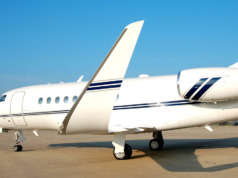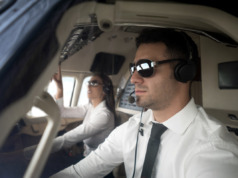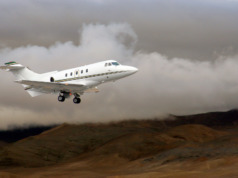
Your aircraft is always on call, ready to fly you and your executives any time, any place. You likely have a permanent crew of two to five pilots at the ready. And even though most of your trips may be scheduled, a last-minute opportunity or change in plans sometimes requires spur-of-the-moment travel, and your pilots may not be sufficiently rested. (See “Good Nights Equal Good Flights”, BAA, April/May 2015).
Plus, mandated twice-yearly, two-week recurrent training, sick time, short- or long-term disability, maternity/paternity leave, or vacation time may leave you with a pilot shortage.
So for 24/7/365 coverage, you’ll want a bank of “on-call” substitute pilots, trained and ready to serve you at a moment’s notice.
What are your options to find such qualified, experienced contract pilots, better known as “supplemental crew”? Whether you run an independent Part 91 flight department, or are a client of a large or smaller regional aviation management company, you have two options: hiring an independent contract pilot, or hiring a contract pilot who is an employee of an aviation staffing company.
There are both similarities and differences between them, and benefits and drawbacks to each:
- Availability – With either option, the arrangement is “at will” by both parties: that is, should you not be satisfied, you simply don’t engage the pilot again. But the opposite also is true: an independent may not always be available; however, the staffing company will provide another pilot.
- Insurance coverage – Your insurance company may not offer coverage for – or may impose an extra premium to cover – an independent contractor, while the staffing company provides insurance coverage.
- Liability – While you always should consult your own attorney, generally, you may not be liable for any negligence caused by the independent contractor. Conversely, you would be responsible for injuries to the independent incurred on your aircraft or in your office, whereas an employee of a staffing company would be covered by its liability and workers’ compensation insurance.
- Taxes and benefits – When you hire a temporary contract pilot, you are not required to withhold taxes, pay Social Security, or any benefits: these will be paid by the individual (if independent), or by the staffing company.
- How should you select a qualified pilot? You can find a contract pilot either through a reputable aviation staffing company (the National Business Aviation Association has such a list), or through a personal referral. While either may be a good option, that pilot should meet three important criteria:
- Technical skills – Type ratings, hours, and current medical needed to satisfy both your own and your insurance company’s requirement that your aircraft will be flown safely.
- Suitability – Personality and “culture fit” with your permanent crew. You want your entire flight crew to get along, so look for skill and reliability, plus compatibility.
- Likeability – Your own “gut reaction” to the candidate, as well as the reaction of your frequent passengers: your executives and perhaps your family. A brief personal interview often will give you more useful information than a battery of behavioral tests.
- Whichever option you choose, either you, your HR department, or a reputable staffing company will:
- Identify, screen, and interview candidates.
- Review their documents – You’ll want to see successful completion at an FAA authorized training facility, validated training records, total flight time in a specific aircraft type (normally 200+ hours’ time in a type of airframe), medical certificates, applicable licenses, and FAA forms.
- Oversee behavioral assessments, compliance checks, applicant scheduling, administrative management, and post-hiring supervision.
Hiring a contract pilot who is properly trained and vetted, and who meshes well with you, your permanent crew, and your company culture, means that you have an asset on board, not a liability. Protect yourself, your crew, your passengers, and your aircraft by making the proper choice. BAA
George Kythreotis is the former VP and General Manager of Jet Professionals, a wholly owned subsidiary of Jet Aviation, a General Dynamics company. He previously held multiple senior positions in human resources and operations.




